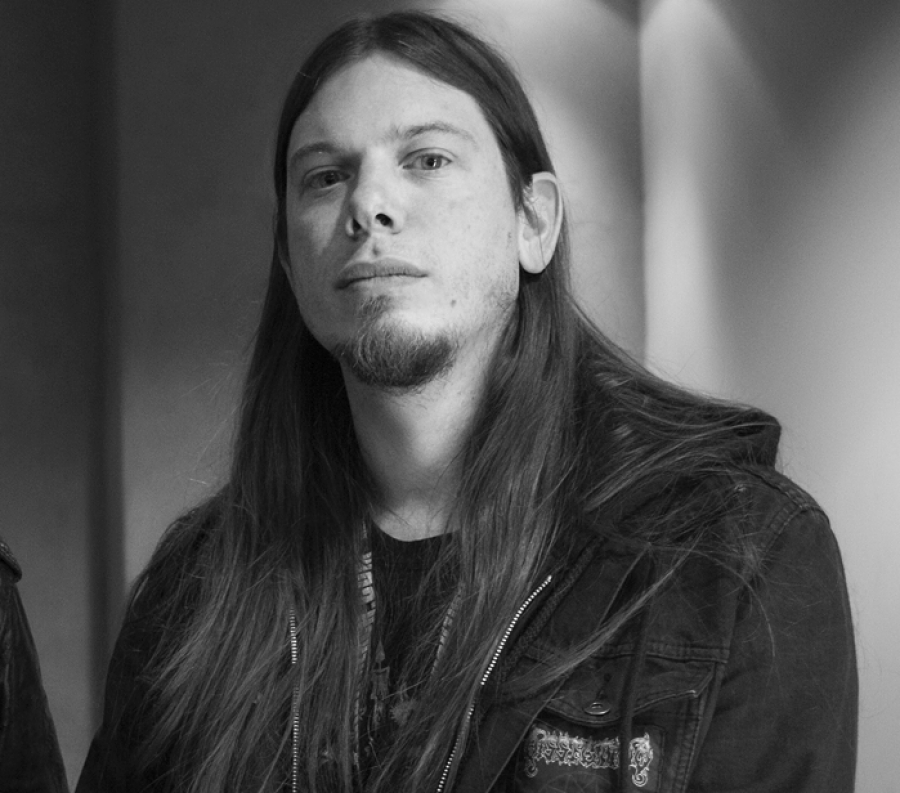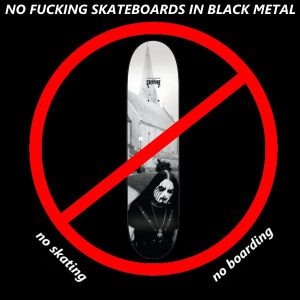I know Dayal Patterson for a long time, since my first (and failed) attempt to make a deal with Feral House Publishing about releasing Dayal's book "Black Metal: Evolution of the Cult" in Russian language in 2014. During our many short conversations it turned out that we are in many respects similar (we even look similar), but because of the total employment of both of us, we could not talk for real. This interview was a good opportunity to learn more about the talented author of the great book "Black Metal: Evolution of the Cult" and its sequels. Experienced journalist, Dayal knows how to make a good interview, so he tried to give the maximally detailed answers. Sit back comfortably - this reading will be long.
Hello again, Dayal! Be prepared, for I have a lot of questions. Let's start from the event that happened long time ago in a galaxy far far away... What passion was your first - writing or listening to metal? I ask because of my personal experience: before metal, I wrote amateur reviews of video games in my notebook. When did you started to listen to metal?
Dayal: Hello! Okay I am prepared for this long interview I think, I have a beer so let’s go. To answer your first question, I only began writing about metal / music, because of my interest and passion in the subject, I didn’t have any ambition to be a non-fiction writer/journalist generally, and in fact intended to be a photographer and graphic designer (which I guess I am to some extent, as I do all the design work in Cult Never Dies and the odd freelance job). That said, at an earlier stage I did want to write fiction and I wrote a lot of essays during my studies, so now I think of it, that probably had an impact when I did begin writing my fanzine. But before the zine in the early 2000s I never did any online reviews or anything like that.
How did you discover Black Metal? What impression did it make on you?
D: I was already listening to metal and extreme metal, and bands such as Carcass, Paradise Lost, Bolt Thrower and so on. When I was about 14 I stopped going to school for a while and started hanging out at record stores etc during the weekdays when there were no other kids about. There I would meet older metalheads and these introduced me to black metal bands like Emperor, Gehenna, Cradle Of Filth, Gorgoroth, Hecate Enthroned, Darkthrone and so on. For me it was a revelation because this music had the heaviness and brutality of death metal but with more layers of meaning, feeling and atmosphere.
Was it hard for young metalhead to live in the place where you lived? Was there some kind of hostility from “regular” people? In post-USSR we had horrible fights for example, you could be literally killed in 90's if you had long hair and walked into wrong neighbourhood.
D: No, I certainly never experienced anything that extreme thankfully. I lived in a fairly small town with fairly small town attitudes and so of course we metalheads would attract some attention, but these were basically verbal arguments – if anyone shouted anything at you, you shouted back or approached them and it would normally end there – basically if you stood your ground it would rarely get serious. No one ever tried to physically attack me though I was over six feet tall by the time I got into metal so that probably helped – a couple of my metal friends had / have somewhat violent/delinquent tendencies so that made things easier I guess.
What was the first metal gig you visited?
D: Well I saw some local metal band in a pub when I was about 14, but the first real gig I went to was with the mighty Emperor in London about a year later. Great times and a great start to gig-going!
Have you tried to become a musician?
D: I did study music for a time and do still record music, but I’m a bit neurotic about letting other people hear this stuff, so it’s basically just a hobby –one that I don’t have much time for at the moment. I did play in a black metal band in the mid to late 90s/early 00s but, again, we only made rehearsal tapes and so on, so very insignificant really. I made a conscious decision to focus on non-musical activities once I moved to London – I had ambitions to be involved in more bands and so on when I decided to move here, and I did play in a couple of groups here (even doing live shows etc) but there were so many bands and musicians about that I felt I could make more of an impression as a photographer or writer, than as one of a countless number of guitarists in the capital.
Tell me about your fanzine Crypt. How many issues were released? Why you decided to create it?
D: Crypt began in 2003 and was started for somewhat sentimental reasons, because by this point print fanzines in the UK were basically dead, replaced by internet webzines. When I was first going to shows in the 90s there were always multiple people selling zines out front and I missed that part of extreme metal culture – and also I needed a distraction from the final dissertation I was doing for my degree, as it was becoming a bit all-consuming. The final ingredient was the fact that one of the guys that got me into black metal had an unpublished zine from 1995 and I thought I could include this along with interviews by another friend who was studying journalism at the time. In the end I only used a couple of interviews from the first guy and some reviews by the second and wrote the rest myself. The aim was to create something between an underground zine and a ‘normal’ metal magazine like Terrorizer (who I was taking photos for), as I felt I could match or improve on what that was doing at the time. I did two issues and then was asked to write for Terrorizer and Metal Hammer so there didn’t seem much need (or time) to keep doing my own zine.
What was your first more or less serious material about metal? This interview with Mayhem for Crypt or something else?
D: Yes the Mayhem interview (and also Forefather and Napalm Death interviews) for issue one of Crypt was I guess the first serious thing I ever wrote about metal I guess, and I included the Mayhem interview in Black Metal: Prelude To The Cult for historical reasons – it’s actually an interesting read, although I find it a bit basic compared to what has followed of course.

What was your first professional material (paid material I mean)?
D: That would be the photography I was doing for Terrorizer, with live photos and portraits of bands such as Krisiun, Arch Enemy, Earth, Primordial and so on. In terms of written material it was again Terrorizer, I think the first thing I did for them was a live review of a show with Jungle Rot and Incantation. Written work wasn’t really paid, but you got enough to cover your drinks at the show and got in for free, so fair enough I thought.
If it's not a secret, how much they paid for it? The story about “how I earned my first dollar” is always interesting!
D: Very little, as I say maybe enough to buy a few drinks or a CD or two. Photography work was slightly better, and you could get a reasonable day’s pay if you did a portrait shoot of a band that was used over a few pages.
Is it possible to work for big metal magazines and live from this, not working somewhere else?
D: Yes it is possible, but only if you wish to go into the office and work full-time. A big magazine like Metal Hammer pays much more for freelance work than Terrorizer (as you’d expect), but you only get so many jobs a month, so you don’t get enough work to live from. I was at one time working part-time for them and doing graphic design work the rest of the time (in other words they gave me regular work maybe 2 or 3 days a week). The only way to get enough work to live from is usually to go into the office as a full-time employee, but then you aren’t doing as much creative work and my aim was to get away from being in an office anyway. A successful photographer could probably live off doing freelance work from big mags and promo pictures for bands, but honestly there’s probably only 5 or 10 people like that in the world.
For the magazines, you write only interviews, or there are some reviews and concert reports, too?
D: I have always written a mix of interviews, live reviews, CD reviews and studio reports. I used to do a lot more magazine work than I do now and was travelling a lot to do features with bands as varied as Therion, Dimmu Borgir, Turisas, Marduk, Machine Head, all sorts. That still happens occasionally, but I don’t have so much time due to Cult Never Dies, so my freelance work is much less than it was.
What band was the best for interviewing in your career as journalist?
D: I’ve interviewed hundreds of bands, so it would really be a challenge to choose one. Some examples would be Venom, Mysticum, Mayhem, Thorns, Darkthrone, Megadeth, Mystifier, Rotting Christ, Sigh, Satyricon, Beherit, Ulver, Celtic Frost, Emperor, Negura Bunget, Arcturus, Manes, Strid, Reverend Bizarre, In The Woods…, Forgotten Woods, Rammstein, Sacrilegium, Burzum, Guns N Roses, The Damned, Tony Iommi… too many to name really.
I saw that you write not only about Black Metal, but also about other types of metal – you did an interview with Helloween for example. Is there any genre of metal that you would never write about, and why?
D: Absolutely, I talked with some power metal bands over the years. I’m not a power metal fan, but for me, writing about a band that you are not so interested in musically is an excellent way to improve your writing skills, because it teaches you to listen to music and analyse it in a more objective way. It also makes you dig deeper into the personalities of the people involved and work harder to understand them, overall it's a challenge that I think is healthy for a music writer to take. There is no genre of metal that I would not write about, but of course I couldn’t write something I disagreed with, for example a positive piece about the nu metal genre or something. But I could interview a nu metal band and try to find out more about the people making the music. положительной точки зрения, или что-то вроде того. Однако я мог бы сделать интервью с группой, играющей Nu Metal, и попытаться узнать о ней побольше.
Tell me about your personal principles of journalism.
D: My aim is fairly simple and that is to reveal truths (preferably truths previously untold), and convey the voice of the interviewee to the reader in as direct, informative and entertaining a manner as possible. Generally speaking I aim to avoid the superficial with my writing and attempt to dig as deeply as possible.
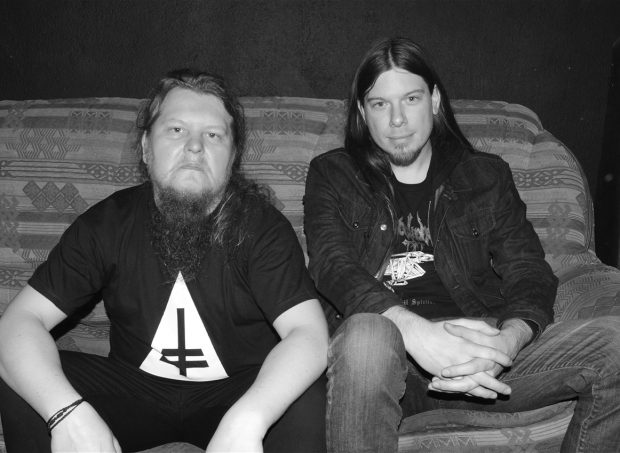
A few stereotypical questions for you as an Englishman :) Do you like football? What's your favorite football club?
D: Ha, I’m actually not a football fanatic, although I do enjoy watching it with friends at the pub now and then. I’m actually mostly interested in international matches, although I live near to Arsenal, so if it’s a national match I usually give them a bit of support.
And what about the tea? What sort of tea is your favorite? Is it true that English coffee is terrible?
D: I do like tea, although in recent years I’ve become a fan of non-traditional teas – roibosh with almond, blood orange black tea, Turkish apple and so on. We have some very fine tea shops in London where the choices are almost unlimited. But in terms of more traditional tea, I would go for Earl Grey – served with a small amount of sugar and no milk. English coffee… well hard to say, because, again, I live in London and we have some of the best coffee shops in the world, shops serving great Columbian roasts or genuine espresso made by Italians and so on. But yes… if you buy actual English coffee from an English café, it’s likely to be bad. We do have fantastic beer though, some of the best you can find in the world, with first class breweries like Siren, Beavertown and so on. I probably drink more beer than tea lately.
About British metal: what is your favorite British band?
D: I think there would be a few contenders for that, but Black Sabbath, Venom, Carcass and Judas Priest must be near the top of the list.
I have an impression that Satanism, occultism and other traditional themes are not popular among UK near-Black Metal bands. They're all more about history and heritage – like Wodensthrone, Saor, Winterfylleth, The Meads of Asphodel and so on. Why?
D: I think that’s true, although there are more underground bands that deal with Satanic topics, so perhaps it’s just a case of the non-Satanic bands being more popular with listeners overseas. The history and heritage thing was definitely very popular in the late 00s and gave UKBM quite a unique and recognisable face, which again helped it spread overseas. UK acts like Hecate Enthroned, Fen, The Infernal Sea, Stahlsarg etc. deviate from this ‘heritage theme’ though, so it definitely isn’t something that defines all British black metal. Still, I think Satanists and occultists in the UK scene are definitely less easily found than, say, France or Sweden.
How much items you have in your musical collection? Which format you prefer – CD, LP, tape? What do you think about this modern trend to make ultra-limited collectors editions?
D: I have a fairly big collection but I am not a ‘diehard’ collector or completest – that is to say that I regularly add to my collection, but only because I am interested in the items involved in terms of listening or reading, rather than buying them to build the collection. I make this distinction because I used to be involved in a column for Record Collector magazine where each month I would visit a collector and photograph his collection and in that time I met really very serious collectors, who would buy every colour of a vinyl release and so on. On the internet you also see some very hardcore metal collectors also – I remember one guy that had bought every vinyl release of Carcass’ latest album and had ended up with something like 50 near-identical records. What a waste of time, money and space (in my opinion).
I know you as polite person, but you never afraid to speak your mind. Don't you think that metal scene became too restrained and moderate? I mean everyone say only the right words and ask only the right questions, because if you make a step sideways, you will be accused as nazi / chauvinist / misogynist / some other -ist. The situation is completely absurd: you can sing about destroying the world, universal misanthropy, raping and killing the children and so on, but if there's anything barely close to nationalism / nazism / racism in your music, you are risking to be banned everywhere. Personally I think that all these movements like Antifa just use metal bands for self-promotion. Russian orthodox church do the same: they ban shows of big bands like Behemoth, Belphegor or Marduk, but they don't care about some Satanic Warmaster or Horna because they are not so famous (though they are far more extreme in their views).
D: I think that’s a fair comment on my personality, I am generally polite but I do speak my mind and sometimes that upsets people. The rest of the question is much more complicated. I think the state of the metal scene is basically a reflection of the situation in the rest of the world, and that is a world where political discussion has basically been reduced to an extremely binary and simplistic understanding of the world where people choose a side (‘left’/‘right’) and then just put issues in one of these boxes and attack the other side. It’s ridiculous and the US has a lot to blame for this. I’m genuinely interested in politics, ethics and world matters and because of that my opinions on different issues would be labelled both ‘left’ and ‘right’, which seems to upset people sometimes. To put it simply, I don’t have a huge amount of time for nationalism or racism as it goes against the basic principles of elitism, misanthropy – and in many cases science. That said, I don't want Antifa stopping me going to see Marduk, so these so-called ‘leftists’ are also equally misguided. There’s also a lot of dishonesty involved – anti-racists lie and label bands as ‘racist’ when they are not at all political, while actual racist bands lie and say ‘oh we are non-political, please don’t damage our career’ instead of having the guts to commit to what they obviously believe in and have stated previously.
What was the best metal show you ever attended?
D: Again a difficult question. Some that stand out in my mind are Emperor, Dissection, Forgotten Tomb, Mysticum, Bolt Thrower, Autopsy, Blasphemy, Shining, Venom, Celtic Frost, Angel Witch and Gorgoroth.
This question might sound silly, but what do you do at gigs? Bang your head / mosh or stand near the bar, just looking at the bands?
D: Depends on the show – these days I can add a third possibility; looking after a merch table for myself or someone else. I never thought about this but I guess these days I tend to stand near the front and wander right to the front for a few songs now and then as well as heading to the bar every so often. Gigs have become such social events that it tends to be the place where you catch up with friends from the scene, and in that case you want to be able talk a bit between songs and get to the bar for the next round, so then you’re a bit further back. However I don’t like to be too far away from things or I feel a bit distant from the whole experience.
Let's talk about your books. What made you to write Evolution of the Cult? Why you decided to write a book about Black Metal, not some other genre?
D: I guess this goes back to an earlier question you asked – just as I wrote about metal more due to a passion for metal than a passion for writing, I wrote a book about black metal because of a passion for black metal, not because I particularly wanted to write a book. Of course, things have changed and today I enjoy creating books for their own sake, particularly since I took full control of the publishing aspect. But to answer your question more accurately, I suppose I feel that black metal is the broadest genre in terms of music, ideology, aesthetics and so on, and has some of the strongest personalities in metal, and for that reason I feel it a good subject to create books about. I would struggle to write a book series about death metal I think, even though I love bands like Autopsy, Repulsion and so on. The other factor was that a lot of people were already writing about black metal in magazines and books, and even making documentaries, and in most cases it seemed these people were from outside the scene and were just speaking to the same five Norwegian bands each time. Because of this, the history of black metal was becoming very distorted and I wanted to set the record straight by allowing the various protagonists of the genre to have a platform to tell their own stories – this was a big motivating factor.

People have different views on Black Metal and how it should be. What do you think are the most important aspects of Black Metal? Can you name a band that embodies the genre in your personal opinion?
D: Of course this is something that I think about a lot and my conclusion is that black metal is ultimately defined by a plural of meanings, rather than a singular one. In that sense there are many bands that could be said to embody the genre, even though they are very different from (and in some cases even contradict one another. Black metal is largely about individuality and as such you have very conflicting ideas about how the music should sound and what ideology or message it should carry. And in the midst of all these conflicting opinions we probably find the essence of black metal. I think ultimately what all black metal music has in common is atmosphere, even in terms of more brutal bands like Blasphemy who come close to death metal stylistically, or more cold, unhuman groups like Blacklodge or Deathspell Omega. All black metal bands worth anything have at their foundation this primal feeling of touching something greater than the human individual, whether it’s labelled ‘Satan’, ‘Odin’, a particular ideological cause, ‘nature’ or whatever else. I don’t think black metal necessarily needs to be Satanic, because if we take that line then we rule out bands like Hades, Strid, Satyricon, Immortal, Burzum, Thorns, all but one Mayhem album, Mgla, and many, many more, but I do think it ought to be anti-Christian/anti-Abrahamic. I also think black metal music – by that I mean the songs themselves – ought not to be too political (or political at all), whether ‘left’, ‘right’ or ‘centre’ – it’s okay to voice those views in interviews, but when black metal music becomes overly political it is no longer black metal in my opinion.
You wrote five books already, and there are more to come. Do you have some scheme of creating new books?
D: Mmm, not really. There are a lot of projects in my mind already that I would like to do and if we do them all I think this will take us into 2019 easily. Time is really the factor, because I can’t rush a book, even if I’m working 14 hour days, it takes a lot of time to create a book. 2018 will see some books focussed on one band/artist at a time, namely Rotting Christ and Mortiis, so this is something new for us. And of course at some point I need to finish my next black metal book, because recently I am more involved in releasing books by other people, such as the very popular Doom Metal Lexicanum by Russian doom fanatic Aleksey Evdokimov.
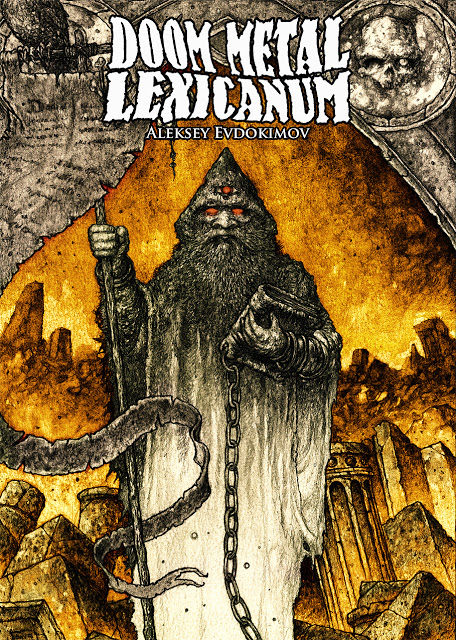
What do you think about Evolution of the Cult today? I know that only a few years passed, but maybe there is something you'd like to change in this book?
D: Yeah of course, I always want to change stuff! Actually this is the reason I don’t release music and stopped painting. But generally I am very happy with that book today, especially when it’s read with Prelude To The Cult, which contains material the publisher didn’t have space for. Of course there are bands missing such as Immortal and Satyricon, so today I regret that, but on the other hand, for me all these black metal books are parts of the same work, and, for example, Satyricon appears in the second full-length book, Black Metal: The Cult Never Dies Vol One, so what’s the difference really? If you are really interested, you will follow the series I think.
How was the experience with Feral House? Working with them was satisfying?
D: Not really! Good and bad I guess: The distribution is quite good, so for that I’m happy but communication is rather hard work and working with the designer was a bit of a nightmare haha –he turned out to be a bit of a ‘Jekyll and Hyde’ character, ironically rather stranger and more difficult character than any of the 100 black metal musicians I interviewed. But we got there in the end; I generally decided which photos to use and where and he followed the instructions and also designed the cover. The other problem is that Feral House are also not really interested in the metal scene in an of itself, and I think the promotion could have been much, much better – I ended up organising all interviews myself bar one and there was no advertising in magazines that I’m aware of. But you know, in the end I realise this was a good thing. If my experience with Feral House had been totally comfortable I would never have been inspired to found my own publishing house, and that was one of the best decisions of my life.
Doing these books, you travelled to different parts of the world. Can you remember what country was more hospitable? Were there any unpleasant events during these travels? What country would you like to visit?
D: I wrote that first book while spending quite a lot of time in Brazil, Norway and Turkey, and those are all great countries that I would heavily recommend visiting. I never really had bad experiences anywhere, or none worth reporting, but Norway and Germany are the countries I visit most, because I have friends there and because of festivals and work. As for countries I would like to visit - well, I mostly travel in Europe so I should probably broaden my horizons a bit.
The Black Metal Cult series map is now including mostly Norway and Poland. Which countries you will pay attention to in the following books?
D: Yes certainly. The books that follow will include Greece heavily (this part is already largely completed) and I also want to look more at Sweden, The US, Finland, France and South America. Speaking honestly, I would like to cover all scenes eventually, it’s just a matter of time.
Are there any bands that refused to give an interview for your books?
D: Only two I can remember; IT of Abruptum (who said he was writing his own book) and Deathspell Omega. Immortal at the time I was writing Evolution couldn’t give an interview because of the split, but that’s past now. Nobody else springs to mind though there may have been one or two others, but nobody terribly significant. (Dayal forgot to mention DARK FUNERAL who also refused to give an interview. Thpugh probably they finally agreed, and the interview will apear in one of the next books).))
Is there any bands that you hate, but still interviewed for your books? No names, of course.
D: No. I can honestly say I listen to all or some of the music created by all the bands included so far in the books that I wrote. The second fanzine anthology we released, Ultimate Darkness Zine Anthology 1995/2017 contains a lot of groups, including a few that I hadn’t heard of previously – but I only edited that, I didn’t do the interviews except for those with the original writers, so I don’t think that counts.
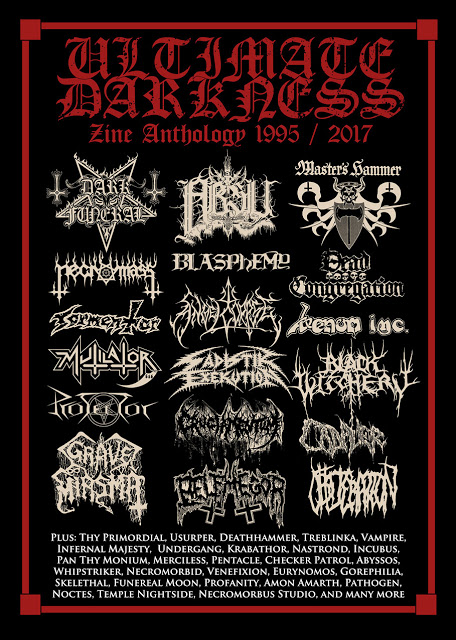
In which countries your books were released already?
D: USA, Germany, Poland, Russia/Belarus (of course!), France and now Japan (although I’ve not seen this one yet).
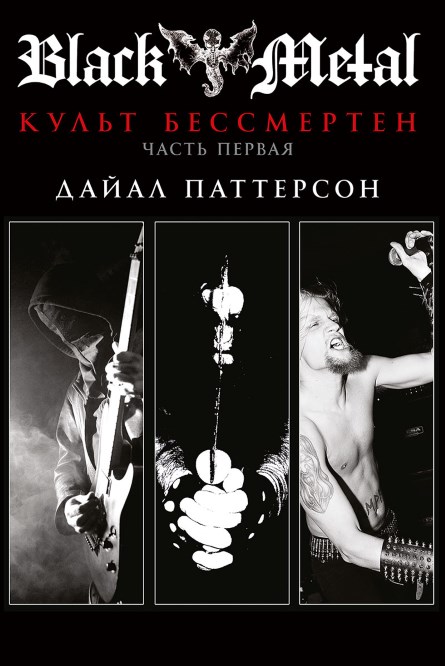
Which of the foreign editions are the most beautiful in your opinion?
D: Well the Russian and German editions are in hardback, so that’s very nice. And the US version of Cult Never Dies Vol One has a totally new cover design which is cool because it’s a style I would never use myself in Cult Never Dies publishing, but it’s a good design. Actually it’s quite cool that the Russian language Prelude To The Cult cover is based on the limited edition cover of the original too. It’s nice seeing books in other alphabets, with non-Latin characters.
Please explain the branching conception of Black Metal Cult series. I mean the difference between Cult Never Dies, Into the Abyss and The Mega Zine).).
D: Of course. So the Cult Never Dies and Into The Abyss series are directly linked – so the first book in each series both dealt with depressive black metal, Norwegian black metal and Polish black metal. And the second in each series will deal with, most likely, Greek black metal, US black metal and Swedish black metal. The difference between the two series is the format; the Cult Never Dies Volumes are written in a traditional editorialised style, with quotes and a narrator’s voice. The Into The Abyss books on the other hand look and read like fanzines with detailed Q and A interviews and a more dense aesthetic. Through these two methods I hope to offer different angles on the black metal genre. The Mega Zine series on the other hand, is the loosest of the lot, written in fanzine style as well but involving other writers, non-musical interviewees (artists, photographers, labels) and non-black metal bands that I consider important.
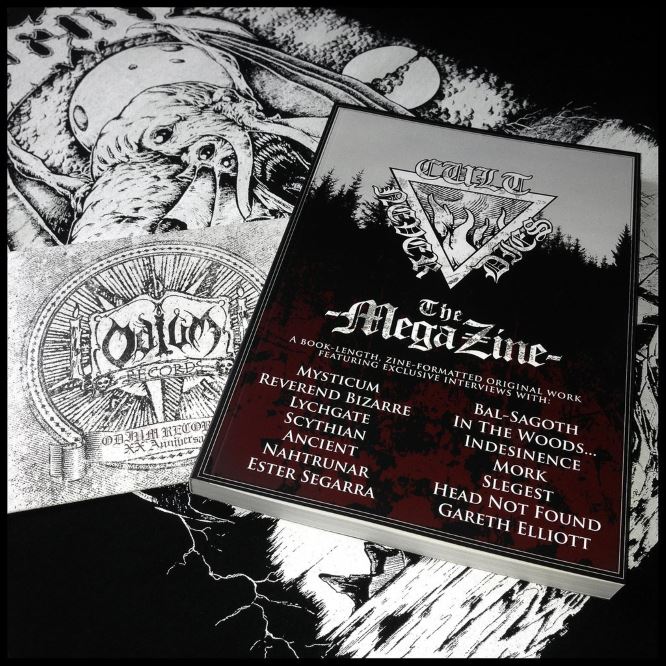
Is it possible that you will write a book not about Black Metal in the future?
D: Cult Never Dies The Mega Zine was certainly a partial step away from black metal, even if it is kind of part of that book series. But it mixed black metal bands such as Mysticum and Mork, with loosely-related acts like Bal-Sagoth and In The Woods… and non-related outfits such as Reverend Bizarre and Indesinence. I suspect that in the near future I will continue to concentrate on black metal though – I want to explore other genres, but in most cases I think there are writers more qualified than I, hence the doom book, which I edited but did not write.
That said I would like to do another art book, and although Owls Trolls & Dead Kings' Skulls: The Art Of David Thiérrée obviously has connections to black metal (due to David creating art for Behemoth, Gorgoroth and so on), much of the content is not related to black metal or music.

Do you have any great goal as a person, author and journalist?
D: My goal is to keep releasing high quality books and clothes basically.
The last question: name your top 10 albums (all music styles and genres)!
D: Okay another tough one - here are some from the top of my head in no particular order…
MYSTICUM: In The Streams Of Inferno
CHRISTIAN DEATH: Catastrophe Ballet
GUNS’N’ROSES: Use Your Illusion II
AUTOPSY: Mental Funeral
THE SISTERS OF MERCY: Some Girls Wander By Mistake
BURZUM: Filosofem
VENOM: Black Metal
THE DAMNED: Machine Gun Ettiquette
JUDAS PRIEST: Sad Wings Of Destiny
CELTIC FROST: Into The Pandemonium
Thank you for your time and hard work Dayal! As always, here you can tell whatever you want to tell to Bagnik Zine readers :)
D: Thank you for the interview and thank you to the readers for taking the time to read it! I would recommend visiting www.CultNeverDies.comto see what these books are all about and also check out some of our official shirts/hoodies from bands such as Ulver, Beherit, Rotting Christ, Mysticum, Necromantia… forgive the self-promotion, but one has to take advantage of every opportunity these days! www.CultNeverDies.com, чтобы узнать побольше о наших книгах, а также присмотреться к официальному мерчу таких групп, как ULVER, BEHERIT, ROTTING CHRIST, MYSTICUM, NECROMANTIA… извиняюсь за рекламу, но в наше время нельзя терять ни единой возможности!

